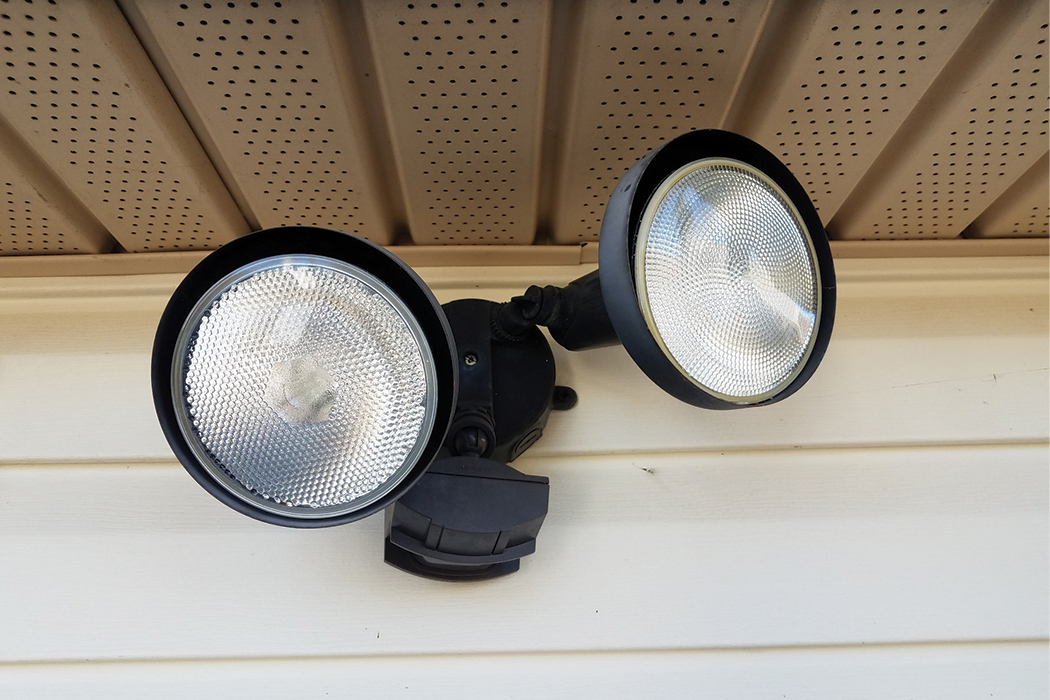Why Wireless Home Security Systems Are Reliable

In an increasingly connected world, wireless technology allows us to use devices and systems—from smartphones to speakers to home security systems—with increased speed and efficiency.
In fact, wireless networks supported more data traffic than ever in 2022, and that same year, the US wireless industry invested $39 billion into growing and improving networks. Suffice to say, wireless isn’t going anywhere and is only getting better.
Along with this investment in wireless technology, it’s become the standard for hosting a variety of home devices and systems, including security.
Before we dive into the reliability of wireless home security systems, let’s first examine how they work and the advantages of opting for wireless versus wired.
What Is a Wireless Security System?
Previously, home security systems used landlines and cables. Modern technology allows systems to function through wireless networks, such as Wi-Fi and cellular, using radio waves to connect to digital devices and exchange information.
The latest security systems use wireless components in panels, sensors, and other devices, all of which use wireless communications to send alerts.
Wi-Fi is just one type of wireless networking technology, through which devices stay connected via a wireless router or access point and can connect to the internet. Typically used in homes, Wi-Fi networks cover a smaller area and require a connection to a larger network provider.
Another way to connect wirelessly is through signals from cellular towers. Smaller electronics and applications may use Bluetooth and Z-Wave technology, which are also wireless.
Wireless vs Wired Security Systems
Beyond how they operate and connect, there are several differences between a wireless home security system and a wired one to look at in terms of reliability as well as preference.
An advantage of wireless systems is that no physical wires are running through the house to connect components in a hardwired system. Homeowners may prefer a cleaner look, with no cables in sight and without the expense of needing to cut into walls to access wires.
No landline or cable wires also means burglars can’t physically cut them to disable security systems. With wireless security systems, an alarm immediately goes off if a potential intruder attempts to tamper with sensors or the control panel. Every second counts during burglaries, and wireless systems ensure prompt response in contacting emergency services.
Additionally, wireless security systems are easier to install, maintain, and customize or add components. The lack of wires makes for a more streamlined installation process. Systems can be placed to your liking by professionals without physical constraints (like phone lines), providing more coverage options. Program updates to systems are transmitted wirelessly and can be set automatically, so homeowners don’t have to worry about making sure their system is up to date.
Another advantage of going wireless is controlling your security system remotely through portable devices. By connecting a smartphone or tablet to Wi-Fi or a preferred wireless network, you can view security camera footage, arm or disarm your system, and receive security alerts from your couch, backyard, or away from home.
Homeowners also appreciate that wireless security systems offer the possibility of integrating smart home devices and automation.
Many modern electronic devices are fitted with wireless capabilities. Typically connected by Wi-Fi and Bluetooth, they can be synched and paired together seamlessly. The latest wireless systems make it easy to add on smart home devices and features, from thermostats and light bulbs to voice assistants.
Are Wireless Home Security Systems Reliable?
It was once believed that traditional wired networks were faster and more secure, but advancements in technology have made wireless systems not only a preferred choice but a reliable one.
An important consideration for depending on wireless technology for security is connectivity. Internet-connected systems rely on availability and signal strength.
Wi-Fi has become the default option for wireless networking, but it is not the only one. Many security systems are optimized to use cellular signals to communicate and transmit alerts. For homeowners who don’t use Wi-Fi or are concerned about their Wi-Fi network’s reliability, a workaround is a security system operating on cellular, the same network used to make calls or text via cell phone.
How to Find Out if a Home Security System is Reliable
Most wireless security systems have built-in measures to ensure monitoring is not interrupted during potential power or internet outages.
The best option for homeowners concerned about reliability is choosing a wireless system with cellular backup for added protection. This means that systems are supported by a cellular network (such as a major provider of a 4G network or better) even if your internet goes out. Should a power failure occur, newer security systems can also still operate using a backup battery.
Cellular networks are also secure by design, as the Federal Communications Commission (FCC) sets rigid standards for cellular encryption. This significantly reduces the risk of hacker access.
While the chances of wireless security systems being hacked are very low, it’s still important for homeowners to take steps to ensure the safety of their connection and devices. This can be done by implementing best practices in digital security, such as choosing strong passwords, using two-factor authentication, and having strong Wi-Fi encryption protocols.
Where to Find a Reliable Wireless Home Security System
From faster alert transmissions to easy customization and smart home integrations, wireless systems offer many advantages over older, wired systems. Plus, the expansive coverage of wireless networks and investment in them assures that we can utilize devices and systems that rely on them.
Homeowners interested in reliable wireless home security should choose a professional company that offers cellular backup, connecting to the strongest major wireless provider available in your area.
Brinks Home™ systems utilize Wi-Fi with cellular back-up to connect wireless security systems to our Alarm Response Center—no landline or wires needed. Contact us today to discuss designing a custom wireless system for your home.



